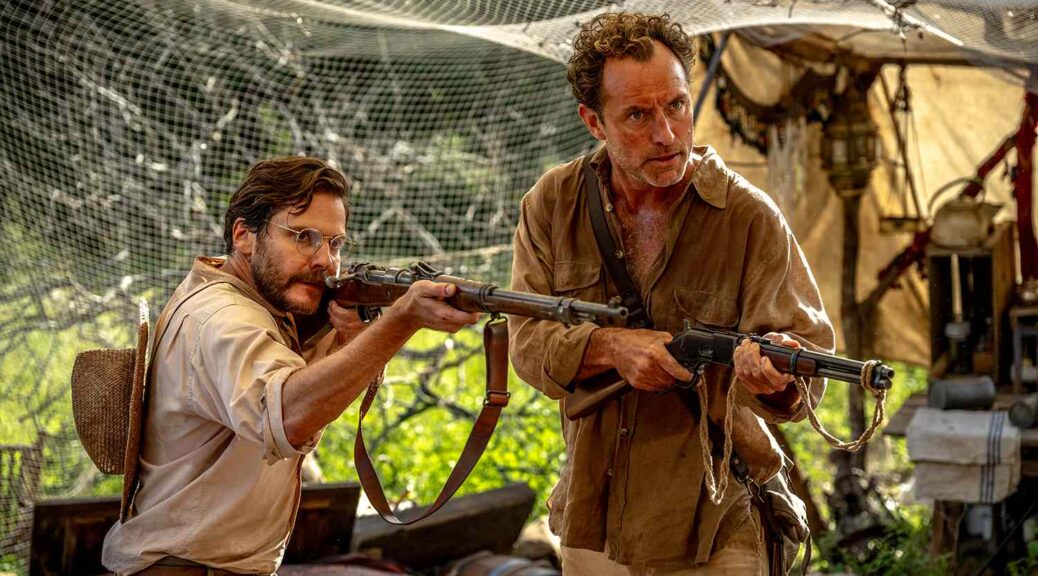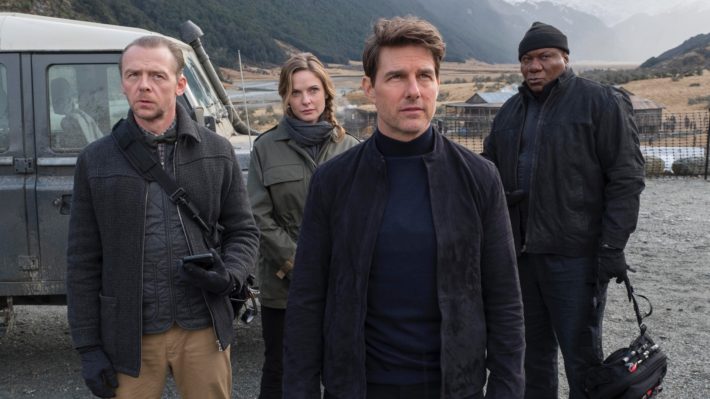Eden
by George Wolf
Eden tells a fascinating story. And it tells that story in a star-studded, well-crafted way that’s rarely dull, even when the weight of its melodrama gets heavy enough to be nearly undone by the film’s parting shot.
Director Ron Howard joins co-writer Noah Pink to recount a historical tale “inspired by the accounts of those who survived” as a parable of greed, power, suspicion and annoying neighbors.
“Democracy, Fascism, war. Repeat.” So yeah, still plenty timely.
In the years just after WW1, Dr. Friedrich Ritter (Jude Law) and his partner, Dore Strauch (Vanessa Kirby), left civilization for a hardscrabble existence on the Galapagos Island of Floreana. Convinced that mankind was finished, Ritter became determined to write a new philosophy that would save humanity from itself, and in pain…find salvation.
His writings were picked up by the occasional passing ship, eventually attracting quite a following among others looking for a new life. And that, of course, led to the very thing Ritter didn’t want on his island: more people.
Heinz Wittmer (Daniel Brühl), and his wife Margaret (Sydney Sweeney) arrive first, inspired by Ritter’s vision and hoping for a better climate for their son Harry’s (Jonathan Wittel) tuberculosis.
The Wittmers – especially Margaret – prove tougher than Ritter imagines, but the Baroness Eloise Bosquet de Wagner Wehrhorn (Ana de Armas, scene-stealing and never better) is a larger-than-life problem no one expected.
The Baroness arrives on Floreana with servants/lovers and a grand plan to build an ulta-exclusive hotel for the wealthiest of tourists. De Armas digs in, crafting her as a shameless narcissist, so ruthless and sociopathic that she’d be cartoonishly absurd if not for the gaslighting cult of personality we wake up to every day.
The entire cast shines. And like her or don’t, Sweeney continues to impress with another film that challenges her range and physicality (Margaret must fight off wild dogs and give birth alone…damn!) while eschewing any shades of empty pinup girl glamour.
The running time pushes well past 90 minutes, but Howard keeps things humming right along. The dangerous motives, shifting alliances and double crosses create an over the top, sometimes darkly funny concoction that pulls us in, fascinated by who will emerge the victor in this battle for the unhappy high ground.
And when the inevitable historical update arrives with the credits, we see footage of the actual people who fought this fight…and they’re laughing, smiling, waving! Like the surprising Maria Callas footage in last year’s Maria, you wonder where these happy people have been hiding the last two hours.
Bet they could have shed more light on what life was really like on the island of lost smiles.
But would they have been as much primal, pulpy fun?










